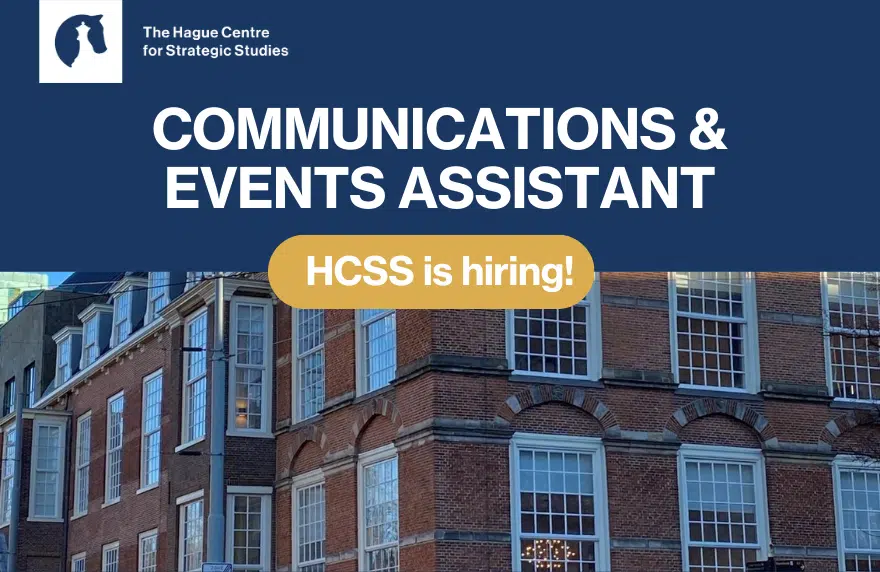“And then one day you find, ten years have got behind you” the old line from the Pink Floyd song goes. But at The Hague Centre for Strategic Studies, this is not because (as the song suggests) we have been lethargic, but rather because we have progressed at a great pace in analyzing global trends and events which have themselves unfolded at dazzling speed. And no region has seen more dramatic and rapid change than the Middle East. Where before 2010 we still spoke about the Arab exception (“why do countries in the Middle East not democratize?”), today the region continues to reel from the convulsions resulting from arguably the most momentous regional uprising since the revolutions in Eastern Europe.
Apart from the fact that they are an unspeakable tragedy, the Arab Revolutions (2010- ) have also confounded pundits, policy-makers and researchers: how did such a conflagration seemingly emerge out of nothing? Why did it spread to so many countries across the region (yet not all of them)? What were the underlying factors? And, most importantly today: how can its consequences be mitigated and peace and stability be restored?
HCSS has produced various pieces of research on the causes and consequences of the uprisings. For instance, in a 2014 report we pointed out that youth bulges across the region suggest that we are dealing with a generational struggle that may last for much more than a few years—and we are already over six years in. In a 2015 report we examined how in the face of climate change affecting the region, there continues to be room for developing agriculture in various Middle Eastern countries. More recently, we zoomed in on the fate of ISIS, disentangling the factors that gave rise to it, but also how and why it could soon crumble (as it is doing today) as well as on what direction Turkey’s foreign policy could take the wake of the 2016 coup attempt. Of course, we have also examined the role of oil and gas reserves on the region’s stability, and how developments there affect our supply security.
This brings up another dimension of our work, namely its audience. Who should care, and why? More than any other global event, the Arab uprisings have brought home the fact that what happens in seemingly remote places can touch our lives directly. Not just in the sense of feeling sympathy and wanting to donate to a charity, but in the shape of flows of migrants crossing the waters towards Europe, and radicalized youth wanting to become jihadists and travelling in the opposite direction. People in the hamlet of Oranje, Drenthe could little have realized that their community would one day be asked to accommodate a large group of refugees, all because of an uprising that started in Deraa on the southern border of Syria back in 2011. Cities such as Aleppo –which I managed to visit in the early days of the war in Syria- Raqqa and Mosul have now become household names. Peoples such as the Yezidi’s no longer live in “faraway countries of which we know nothing.”
In other words, what happens in the Middle East clearly doesn’t stay in the Middle East. And this makes it a concern not just for policy-makers (our primary audience), but also the public at large, which we try to inform from time to time, see No Great Game in the Middle East, but New Lines in the Sand, Jihad Joris: Dutch converts waging Jihad in Syria and Iraq and Distinguishing between refugees and migrants, based on insights from our research as well as substantive expertise.
The key message of our research approach is that it is important to cut through the daily media deluge to understand not just the real drivers of conflict but also what sources of stability can be leveraged. And perhaps this applies nowhere more so than in the Middle East where sudden events can have monumental consequences. The self-immolation of Mohamed Bouazizi in a small town in Tunisia is only the best example here. Even at HCSS, we will admit that such black swans can simply not be predicted. But we do argue that combining quantitative and qualitative approaches – especially in light of the current data revolution – can provide us with better insight into what really drives surface events in the world. We will continue to pursue this approach also into our second decade, at the end of which we can celebrate that “it was twenty years ago today…”
Willem Oosterveld, strategic analyst
This post is part of a series on the HCSS 10 year anniversary. Throughout the year analysts, experts and former colleagues will publish a post reflecting on the past 10 years.
Read the post by Paul Sinning, Executive Director
Read the post by Rob de Wijk, founder and non-Executive Director
Read the post by Sijbren de Jong, Strategic Analyst
Read the post by Stephan De Spiegeleire, Principal Scientist
Read the post by Michel Rademaker, Deputy Director Market and Operations
Read the post by Karlijn Jans, Strategic Analyst




